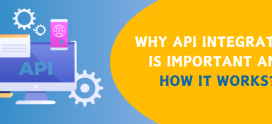
Analyzing The Custom Software Success In Detail
Organizations that need applications with unique features and functionality turn to software developers to design and create custom solutions. Custom software is software that is designed and developed specifically for a particular organization or business.
What is Custom Software?
Unlike off-the-shelf software, which is designed to be used by a wide range of users, custom software is tailored to meet the specific needs and requirements of a particular business. It can provide a wide range of benefits for your business, from increased efficiency and scalability to enhanced security and greater flexibility.
If this is what you are looking for….
Different WAYS to improve your business processes and gain a competitive advantage.
Then this may be the solution you’ve been looking for. In this blog post, we will analyze the custom software success in detail and get to know how it is more beneficial than off-the-shelf software.
Benefits of custom software
1. Increased efficiency
One of the primary benefits of custom software is that it can help increase efficiency within your organization. When you design software specifically for your business, you can optimize it to streamline your business processes and automate repetitive tasks. This can help reduce the amount of time and resources required to complete these tasks, freeing up your employees to focus on more important work.
2. Improved scalability
Another benefit of custom software is that it scales with your business, meaning it grows and adapts as it evolves. This can help ensure that your software continues to meet your needs over time without requiring you to invest in new software or retrain your employees.
3. Enhanced security
Custom software can also provide enhanced security for your business. When you design software specifically for your organization, you can build it with security in mind from the ground up. This can help reduce the risk of data breaches and other security issues, as well as provide peace of mind for your customers and employees.
4. Greater flexibility
It can also provide greater flexibility than off-the-shelf software. When you design software specifically for your business, it meets your unique needs and requirements. This can help you better manage your business processes and workflows and can also help you respond more quickly to changing market conditions.
5. Simple to Implement Changes
Agile software approaches make it simple and efficient to make changes to the software. Businesses can easily improve and change their software to meet the needs of their customers. You can make adjustments at any point in the development process without affecting the product.
6. Constant Assistance
Choose someone who will provide ongoing support beyond the initial setup. The company you choose must have a team of professionals ready to assist you with any revisions after creating the initial code.
7. Maximum Safety
In today’s digital age, cyber-attacks are becoming more common. Black hat hackers are familiar with practically all types of software, knowing how to get in, steal users’ data, and get out.
Custom-made software prevents this because only company staff and developers know how to use it. In addition, attackers find it more challenging to discover how to gain access to your system, reducing the possibility of a cyberattack.
8. Competitive Advantage
Finally, custom software can provide a competitive advantage for your business. Providing you with a unique toolset tailored to your specific needs can help you differentiate yourself from your competitors and provide better value to your customers. This can help you attract and retain customers, as well as improve your bottom line over time.
The most common types of custom software are:
1. Web applications
Custom software programs designed to be accessed through a web browser are called web applications. Companies use them for various purposes, from e-commerce and online banking to customer relationship management (CRM) and content management systems (CMS). Web applications are for employees, customers, or both.
2. Mobile applications
Custom software programs designed to be used on mobile devices such as smartphones and tablets are referred to as mobile applications. They can be used for a wide range of purposes, from gaming and entertainment to productivity and business applications. Mobile applications can be designed for employees, customers, or both.
3. Desktop applications
Custom software programs designed to be installed and run on a desktop computer are referred to as desktop applications. Their uses are for a wide range of purposes, from productivity and business applications to gaming and entertainment. Desktop applications are for employees, customers, or both.
4. Database applications
Database applications are custom software programs that can manage and organize large amounts of data. Their uses are for a wide range of purposes, from inventory management and customer relationship management (CRM) to financial management and human resources management. Database applications are for employees, customers, or both.
5. Cloud-based applications
Cloud-based applications are custom software programs that one can access through the Internet. We can use them for a wide range of purposes, from data storage and collaboration to project management and customer relationship management (CRM).
Conclusion
Although the idea of software customization for your business sounds appealing, custom software development isn’t for everyone. The process can be expensive and time-consuming, and it’s challenging to convey the scope of the functionality you need.
So choose the developer wisely.



